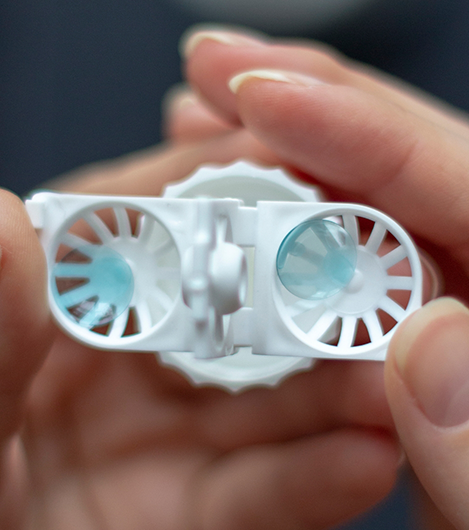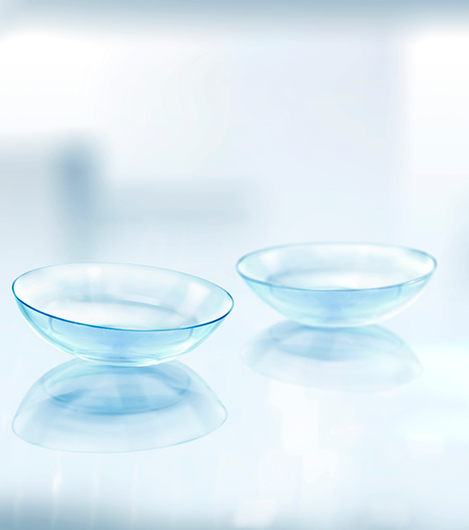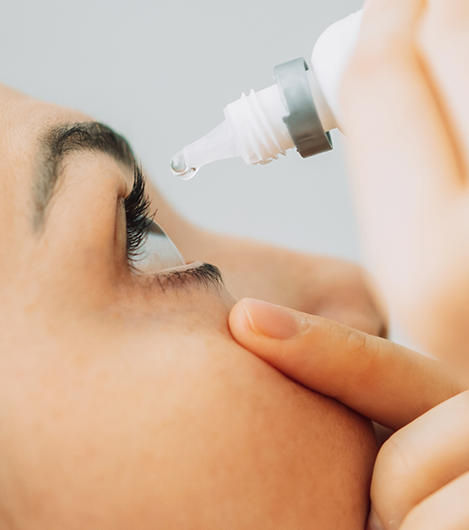Myopia Management Richmond
Understanding Myopia
Myopia, commonly known as nearsightedness, is a refractive error that affects the way light focuses on the retina. Individuals with myopia see close objects clearly, but distant objects appear blurred. Myopia is caused by genetics, as well as other environmental factors. For instance, staring at any object for too long can cause the eye to elongate — it’s this elongation that leads to myopia. This condition often develops in childhood and can progressively worsen as children grow, potentially leading to serious vision problems later in life.
Why Choose Richmond Eye Experts for Myopia Treatment?
- Contact Lenses and Eyeglasses Available
- Insurance Accepted and Welcome
- Patients of All Ages Treated
Why Managing Myopia is Crucial
Controlling myopic changes at a young age is essential for several reasons:
- Preventing Progression: Unmanaged myopia can lead to higher degrees of nearsightedness, which increases the risk of complications such as glaucoma, cataracts, and retinal detachment.
- Improving Quality of Life: Children with uncontrolled myopia may struggle in school, sports, and everyday activities. By managing myopia early, we can enhance their overall quality of life.
- Enhancing Academic and Athletic Performance: Clear vision is critical for success in both academics and sports. By addressing myopia, children can thrive without the hindrance of glasses or contact lenses during the day.
Our Myopia Control Solutions
At Richmond Eye Experts, we offer three main methods for myopia management. They are individually designed to fit your prescription and lifestyle needs:
1. Ortho-K (Orthokeratology)

Description: Ortho-K involves wearing specially designed gas-permeable contact lenses overnight. When worn overnight consistently, Paragon CRT® contact lenses gently correct the curvature of the cornea, resulting in a corneal shape that focuses light correctly onto the retina. When the lenses are removed in the morning, distant objects will come back into focus and patients may see clearly without the use of glasses or daytime contacts. These lenses may be right for patients aged 6 and above who experience these symptoms:
- Blurred vision with distant objects.
- Needing to sit close to the TV or computer.
- Holding a book or tablet uncomfortably close.
- Fatigue when playing a sport or driving.
- Frequent squinting and blinking.
- Difficulty with vision at night.
- Falling behind in school.
Pros:
- Provides clear vision during the day without the need for glasses or contact lenses.
- Non-surgical and reversible.
- Can slow the progression of myopia in children.
Cons:
- Requires commitment to nightly wear.
- Initial fitting and adjustment period may take time.
2. MiSight Soft Dual-Focus Contact Lenses

Description: FDA-approved MiSight 1-day contact lenses are soft lenses that are worn daily and disposed of after each use. A fresh pair of contacts are placed into the eyes every morning to provide the child with crisp and clear vision while also slowing the eye’s elongation — the source of progressive myopia. Four different clinical trials were conducted to study the safety and effectiveness of MiSight lenses over a 3-year span; 135 children between the ages of 8-12 participated in the trials. Those who wore MiSight contacts experienced considerably less myopia progression than those who wore conventional soft contact lenses.
These contacts are safe and easy for children to use since they require almost no maintenance. We are proud to be one of the first practices in the country to be certified to fit MiSight 1-day contact lenses for myopia treatment and be part of the Brilliant Futures Myopia Management Program.
Pros:
- Comfortable and easy to wear.
- Proven to reduce the progression of myopia in children.
- Can be worn throughout the day.
Cons:
- Requires regular replacement and care.
- Not suitable for all patients, depending on specific eye health needs.
Learn More about MiSight 1-Day Contact Lenses
3. Atropine Therapy

Description: Atropine eye drops are used to dilate the pupil and reduce the eye's ability to focus, effectively slowing myopia progression.
Pros:
- Simple and non-invasive.
- Can be effective in managing myopia progression.
Cons:
- May cause light sensitivity and difficulty focusing up close.
- Requires ongoing monitoring and prescription refills.
Learn More about Atropine Therapy
Why Choose Richmond Eye Experts?
Richmond Eye Experts is the premier clinic in the region for myopia management. We are recognized as the top fitters of Ortho-K lenses, having successfully treated hundreds of patients through our Myopia Management Program. Our expert team is dedicated to providing personalized care and monitoring to ensure the best outcomes for your child.
Our patients are thriving in academics and sports without the need for daytime glasses or contact lenses, allowing them to focus on what they love without the burden of vision correction.
Schedule Your Free Myopia Consultation
If you’re concerned about your child’s vision or want to learn more about myopia management, contact us at Richmond Eye Experts. Let us help you take proactive steps toward clear vision and a brighter future for your child!
Myopia Management FAQs
What Are the Signs and Symptoms of Myopia?
As a parent, it's essential to stay vigilant for signs that your child may be developing myopia (nearsightedness) so you can seek timely professional care. Common indicators include:
- Sitting very close to the television.
- Squinting to see distant objects clearly.
- Preferring to sit at the front of the classroom to see the board.
- Holding books or digital devices unusually close to the face.
A comprehensive eye examination conducted by an optometrist is necessary to confirm a diagnosis of myopia.
Does Screen Time Worsen Myopia?
Yes, screen time has been associated with the progression of myopia. Research shows that children who spend seven or more hours per week using computers or mobile gaming devices are up to three times more likely to develop nearsightedness. The global rise in myopia is believed to be linked, in part, to increased time spent on digital screens and other close-up visual tasks such as reading.
Is Myopia Curable?
Myopia cannot be completely cured, but it can be effectively managed. Corrective lenses such as eyeglasses and contact lenses can improve vision by refocusing light on the retina, though they do not slow the condition's progression.
However, several treatments can help reduce the rate of myopia advancement, including:
- Orthokeratology (Ortho-K)
- MiSight® 1-day soft contact lenses or Dual focus lenses.
- Atropine eye drop therapy
While these approaches cannot reverse existing myopia, they play a critical role in preserving long-term eye health and reducing the risk of complications such as cataracts, glaucoma, or retinal detachment.
When Should My Child Begin Myopia Management?
Myopia often begins to appear between ages 6 and 12 and typically progresses most rapidly between ages 7 and 10. Early intervention is key. Once myopia is diagnosed, it’s important to begin management promptly. An optometrist can guide you in selecting the most appropriate treatment based on your child’s age, lifestyle, and visual needs.
Do Glasses Make Myopia Worse?
No, wearing glasses does not cause myopia to worsen. Myopia tends to progress naturally during childhood and adolescence, regardless of corrective eyewear use. Glasses simply help focus light correctly on the retina, thereby improving visual clarity.
That said, certain myopia management options, such as Orthokeratology (Ortho-K) and MiSight® 1-day contact lenses can reduce or even eliminate the need for glasses during the day while also slowing the progression of the condition.
What Should I Do Once I Know My Child Has Myopia?
If your child has been diagnosed with myopia, the next step is to take action with the guidance of a qualified eye care professional. It’s important to consult an optometrist who specializes in myopia management and is affiliated with the American Academy of Orthokeratology and Myopia Control (AAOMC).
Schedule a comprehensive myopia consultation that includes:
- A refraction to assess the degree of nearsightedness
- A thorough retinal examination to evaluate eye health
- An axial length measurement, which helps monitor how quickly the eye is growing
Based on your child’s age, family history, and clinical findings, your optometrist will recommend a personalized treatment plan to help slow the progression of myopia and protect your child’s long-term vision.
If you're in the Richmond area, we invite you to schedule your consultation with Richmond Eye Experts today. Call us at (832) 685-2020 or book online at:
https://scheduleyourexam.com/v3/index.php/6249C1L
Early intervention can make a lasting difference. Let’s work together to give your child the clearest future possible.

